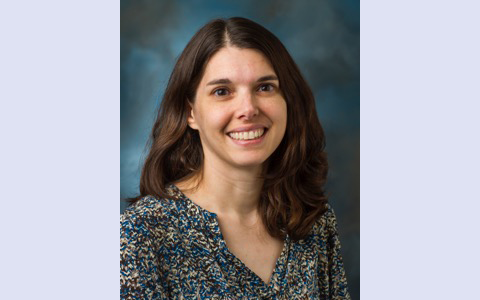Dr. Erica Goss
Professor, Plant Pathology and Emerging Pathogens Institute

Contact:
Plant Pathology: (352) 273-4650
EPI: (352) 294-5318
Email: emgoss@ufl.edu
Office: Rm. #2415, Fifield Hall
2550 Hull Road
Gainesville, FL, 32611
About
I study the origins, evolution, population structure, and migration of plant pathogens. I am also interested in microbial ecology and the molecular evolution of virulence and host range as relates to the emergence of new pathogens.
-
Education
Ph.D. Ecology and Evolution, The University of Chicago, 2005
B.A. Biology, Wesleyan University, 1997
-
Research
My group’s research is on the ecological and evolutionary processes underlying pathogen emergence or re-emergence. We study bacteria, fungi, and oomycetes.
We study the population structure and evolution of Phytophthora pathogens, focusing on Phytophthora species affecting tropical and subtropical crops. We are currently examining effector gene composition and variation in the broad host range pathogen P. palmivora to advance understanding of host range evolution.
In collaboration with Plant Pathology colleagues, we study the population biology and evolution of the pathogens that cause bacterial spot of tomato, particularly Xanthomonas perforans. Bacterial spot is a major disease problem for Florida tomato growers and management is challenged by the highly dynamic pathogen population.
We are also studying the emergence of the fungus Bipolaris gigantea on industrial hemp after spending the last several years characterizing its dynamics on invasive grass Microstegium vimineum. Our current project aims to determine the role of invasive and weedy grasses in disease epidemics on hemp and the evolution of the pathogen post-emergence.
LAB MEMBERS
Postdocs
- Amandeep Kaur
Graduate Students
- Aastha Subedi
- Mariana Herrera Corzo
- Rana Elessawy
- Toi Ketehouli
- Alexander Fast
-
Publications
View a collection of my publications on Google Scholar
-
Teaching
I teach PLP6621 Applied Population Genetics of Microbes, which is an intermediate level graduate course that introduces students to population genetics and hands-on analysis of data. I am also the instructor for ALS3923 CALS Honors Orientation, which prepares undergraduates in the College to write a thesis on independent research.
